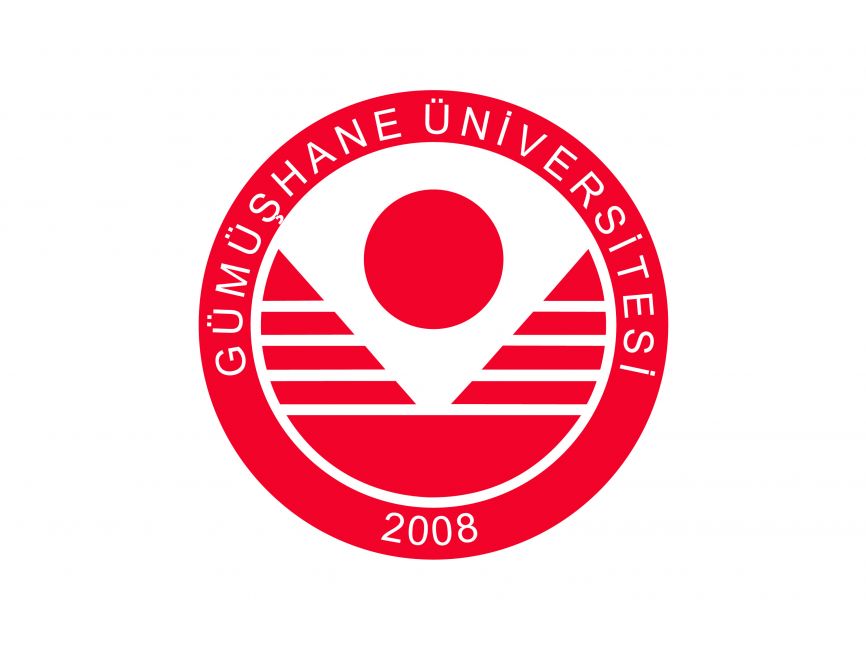Child Development
Overview
<!-- wp:paragraph --> <p><strong>Program Description</strong><br><strong>Child Development Program at Gümüşhane University: Nurturing the Future of Children</strong></p> <!-- /wp:paragraph --> <!-- wp:paragraph --> <p>The Child Development program at Gümüşhane University is designed to provide students with the knowledge and skills necessary to understand, support, and enhance the development of children from infancy through adolescence. This interdisciplinary program integrates theoretical foundations with practical experiences, preparing students to work in various settings such as schools, healthcare, social services, and community organizations. Through a focus on developmental psychology, educational practices, and family dynamics, students will gain a deep understanding of the physical, cognitive, emotional, and social development of children. Graduates of this program are equipped to make a positive impact on children's lives by supporting their growth and addressing developmental challenges.</p> <!-- /wp:paragraph --> <!-- wp:paragraph --> <p><strong>Program Mission and Vision</strong><br>The mission of the Child Development program at Gümüşhane University is to provide a comprehensive education in the principles and practices of child development, fostering the growth of professionals who are equipped to support children and families. The program emphasizes a holistic approach to child development, focusing on the physical, emotional, cognitive, and social aspects of growth. Its vision is to prepare graduates who can contribute to improving the well-being of children through education, research, and community engagement.</p> <!-- /wp:paragraph --> <!-- wp:paragraph --> <p><strong>Curriculum Structure</strong><br>The curriculum is designed to give students a well-rounded education in child development theories, practical applications, and professional practices. It provides foundational knowledge in child psychology, developmental milestones, early childhood education, and family dynamics. Key areas of the curriculum include:</p> <!-- /wp:paragraph --> <!-- wp:paragraph --> <p><strong>Core Child Development Courses</strong></p> <!-- /wp:paragraph --> <!-- wp:paragraph --> <p><strong>Introduction to Child Development</strong>: This introductory course provides students with an overview of the stages of child development, from birth to adolescence. Topics include developmental theories, growth patterns, and the factors that influence child development.</p> <!-- /wp:paragraph --> <!-- wp:paragraph --> <p><strong>Developmental Psychology</strong>: This course explores the psychological aspects of child development, focusing on cognitive, emotional, and social development. Students will learn about key psychological theories and how they apply to children's behavior and development.</p> <!-- /wp:paragraph --> <!-- wp:paragraph --> <p><strong>Early Childhood Education</strong>: This course examines the educational needs of young children, focusing on effective teaching strategies, curriculum design, and child-centered approaches to learning. Students will explore how to create nurturing learning environments that support early childhood development.</p> <!-- /wp:paragraph --> <!-- wp:paragraph --> <p><strong>Physical Development and Health</strong>: Students will learn about the physical development of children, including motor skills, nutrition, health concerns, and the impact of physical health on cognitive and emotional growth.</p> <!-- /wp:paragraph --> <!-- wp:paragraph --> <p><strong>Cognitive and Language Development</strong>: This course focuses on the development of language, thinking, and problem-solving skills in children. Students will learn about key milestones in cognitive development and strategies to support language acquisition and intellectual growth.</p> <!-- /wp:paragraph --> <!-- wp:paragraph --> <p><strong>Social and Emotional Development</strong>: Students will explore how children develop social skills, form relationships, and manage emotions. The course covers emotional regulation, socialization, and the role of family and peers in shaping children's social development.</p> <!-- /wp:paragraph --> <!-- wp:paragraph --> <p><strong>Family and Parenting</strong>: This course focuses on the role of the family in child development. Topics include parenting styles, family dynamics, and the impact of familial relationships on children's emotional and social development.</p> <!-- /wp:paragraph --> <!-- wp:paragraph --> <p><strong>Assessment and Observation of Children</strong>: This course teaches students how to assess and observe children's development through various methods, including structured and informal assessments. Students will learn to recognize developmental milestones and identify areas where children may need additional support.</p> <!-- /wp:paragraph --> <!-- wp:paragraph --> <p><strong>Inclusive Education and Special Needs</strong>: This course explores how to support children with special needs, including physical, intellectual, and emotional disabilities. Students will learn about inclusive education practices and how to create supportive environments for all children.</p> <!-- /wp:paragraph --> <!-- wp:paragraph --> <p><strong>Child Advocacy and Social Services</strong>: This course focuses on the role of child development professionals in advocating for children's rights, welfare, and well-being. Students will learn about social services, legal frameworks, and policies that support children and families.</p> <!-- /wp:paragraph --> <!-- wp:paragraph --> <p><strong>Ethical and Professional Practices in Child Development</strong>: Students will explore the ethical standards and professional responsibilities associated with working with children and families. Topics include child protection, confidentiality, and the role of professionals in promoting the welfare of children.</p> <!-- /wp:paragraph --> <!-- wp:paragraph --> <p><strong>Research Methods in Child Development</strong>: This course introduces students to research methodologies in the field of child development. Students will learn how to design and conduct research studies, analyze data, and contribute to the advancement of knowledge in child development.</p> <!-- /wp:paragraph --> <!-- wp:paragraph --> <p><strong>Capstone Project</strong>: In their final year, students will complete a capstone project that involves researching a specific issue or topic in child development. This project provides students with the opportunity to apply their knowledge and skills to real-world challenges and demonstrate their ability to conduct independent research.</p> <!-- /wp:paragraph --> <!-- wp:paragraph --> <p><strong>State-of-the-Art Facilities and Labs</strong><br>Gümüşhane University provides students with access to modern classrooms, libraries, and developmental psychology labs. These facilities support both theoretical learning and hands-on experiences in the field of child development.</p> <!-- /wp:paragraph --> <!-- wp:paragraph --> <p><strong>Emphasis on Practical Experience and Industry Collaboration</strong><br>The Child Development program emphasizes practical experience, and students participate in internships and field placements at schools, early childhood education centers, social service agencies, and healthcare institutions. These hands-on experiences allow students to apply what they've learned in real-world settings and gain valuable insight into working with children and families.</p> <!-- /wp:paragraph --> <!-- wp:paragraph --> <p><strong>Career Opportunities</strong><br>Graduates of the Child Development program are well-equipped to pursue careers in various fields related to children's growth and well-being. Career opportunities include roles such as child development specialist, early childhood educator, child psychologist, social worker, family counselor, and child welfare advocate. Graduates may also choose to continue their education in advanced degrees related to psychology, education, social work, or family therapy.</p> <!-- /wp:paragraph --> <!-- wp:paragraph --> <p><strong>Shaping the Future of Children's Well-Being</strong><br>The Child Development program at Gümüşhane University provides students with the knowledge, skills, and ethical grounding needed to support children's growth and development. With a focus on education, research, and advocacy, the program ensures that graduates are prepared to make a positive difference in the lives of children and contribute to the creation of nurturing, healthy environments for future generations.</p> <!-- /wp:paragraph -->
Program Description
The Child Development program at Gumushane University offers a comprehensive curriculum designed to prepare students for successful careers in this dynamic field. The program combines theoretical knowledge with practical skills, ensuring graduates are ready for the challenges of the industry.
The program is taught by experienced faculty members who are leaders in their respective fields, providing students with insights into current industry practices and future trends.
Curriculum Highlights
- Advanced Research Methods: Learn cutting-edge research techniques and methodologies.
- Industry Analysis: Explore current industry trends and develop analytical skills.
- Leadership and Management: Develop essential leadership skills for managing teams and projects.
- Innovation and Entrepreneurship: Cultivate creative thinking and entrepreneurial mindset.
- Digital Transformation: Understand how technology is reshaping industries and businesses.
- Sustainable Development: Explore environmentally sustainable practices and their implementation.
- Global Markets: Study international market dynamics and global business operations.
- Technology Integration: Learn to leverage technology for improved business outcomes.
Requirements:
- Bachelor's degree (for Master's programs) or equivalent qualifications.
- Proven English language proficiency (IELTS 6.5+ or equivalent).
- Complete transcripts from previous education.
- A compelling letter of motivation explaining your interest in the program.
- Two letters of recommendation from academic or professional references.
- Valid passport with appropriate visa status or eligibility.
Benefits:
- World-class faculty with extensive industry experience.
- Modern campus facilities and cutting-edge learning environments.
- Strong industry partnerships providing networking opportunities.
- Internship opportunities with leading companies in the field.
- Comprehensive career services including job placement assistance.
- Access to a global alumni network for lifelong professional connections.
Begin your educational journey today.
Apply now and take the first step towards your future.






